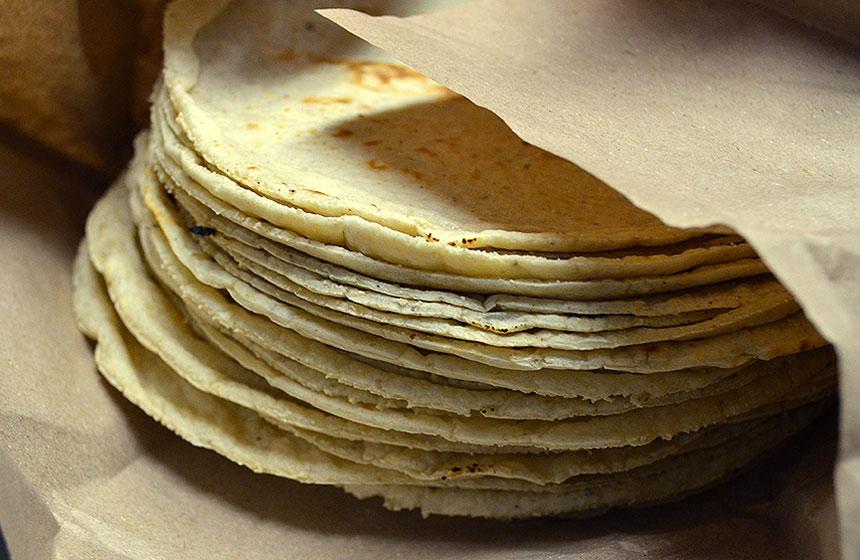
Mexico’s Chefs Are Fighting a Future of Genetically Modified Corn
“Transgenic?” Tonio Luna paused to weigh a stack of tortillas, still warm from their conveyor-belt oven. “What’s that?”
From his stall inside Mexico City’s San Cosme market, Luna sells roughly 400 kilos of tortillas every day. And unlike those flabby white wrappers that pass as tortillas at Taco Bell, his are all made of maize. Corn, in fact, is Mexico’s principle staple; the average citizen consumes roughly a pound of it a day, mostly in the form of tortillas like the 22-year-old Luna makes. Yet to hear many of the country’s top chefs (along with many scientists, farmers, and environmentalists) tell it, the crop is under dire threat.
October 13, 2015 | Source: Munchies | by Lisa Abend
“Transgenic?” Tonio Luna paused to weigh a stack of tortillas, still warm from their conveyor-belt oven. “What’s that?”
From his stall inside Mexico City’s San Cosme market, Luna sells roughly 400 kilos of tortillas every day. And unlike those flabby white wrappers that pass as tortillas at Taco Bell, his are all made of maize. Corn, in fact, is Mexico’s principle staple; the average citizen consumes roughly a pound of it a day, mostly in the form of tortillas like the 22-year-old Luna makes. Yet to hear many of the country’s top chefs (along with many scientists, farmers, and environmentalists) tell it, the crop is under dire threat.
In August, a Mexican federal district judge repealed a two-year-old ban on genetically modified maize, ruling that those who supported it had failed to show that the planting of transgenic seeds caused harm. For the biotech companies behind the suit (including Monsanto, Syngenta, Dow, and Dupont), the judge’s decision was a victory. But for opponents, who quickly lodged an appeal that halted implementation of the measure, the decision represents an attack not just on the country’s most important crop, but on the very essence of Mexican identity.
Controversy about genetic modification is not, of course, limited to Mexico. Globally, supporters argue that crops that are engineered to be drought- or herbicide-resistant, for example, or to contain greater nutritional value, can increase farmers’ yields and help curb hunger and malnutrition. Opponents, however, contend that transgenic crops and the herbicides used with them pose risks to human health, farming economies, and food sovereignty.
